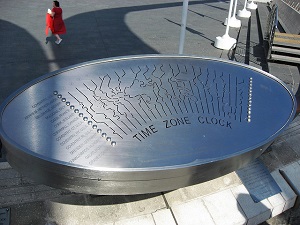The Proposal to Abolish Time Zones
In recent years, many have proposed that we do away with time zones for the entire world or even the United States.
There are several reasons for this, the most pertinent of which is that time zones aren't considered as useful as they were back in the day. If everyone were to be on one universal time zone it would offer many more opportunities for coordination.
 In fact, Astrophysicist Richard Conn Henry and Steve Hanke - an economist - believe that the entire world should adopt one time zone, correlating with Greenwich Mean Time. They also believe that the current calendar needs a change, as well, but that's a different argument altogether.
In fact, Astrophysicist Richard Conn Henry and Steve Hanke - an economist - believe that the entire world should adopt one time zone, correlating with Greenwich Mean Time. They also believe that the current calendar needs a change, as well, but that's a different argument altogether.
Of course, the biggest issue with doing something like this would be the fact that it would throw off the organization of time across the world. In other words, in some places it might be daylight at 11 PM or even later in the evening.
China actually uses this time standard - their clocks are set to Xi'an time across the entire country - so in some areas it's still daylight at 10 PM, like in Dunhuang. There's no question about why this might seem unsettling or unwarranted.
However, adopting one time zone would boost coordination across the country or world. Obviously, the trade-off is daylight. Tim Harford explored this in more detail back in 2006, proposing that the United States adopt one time zone like China currently has.
How Could Eliminating Time Zones Help?
Wall Street is a great example of how coordination could boost business and life. Bankers based out of San Francisco have to wake up super early - at 5 AM - to be active when Wall Street is. This also means that everyone in the financial industry has to be available at the same time to stay in tune.
Oddly, the one thing you'd think would cause issues with a strategy like this doesn't; sleeping patterns while daylight is prominent may not suffer at all, despite inclinations.
According to a 2008 study helmed by Daniel Hamermesh, Caitlin Myers, and Mark Pocock our sleeping patterns are actually affected more by our synchronization with local time zones than by when the sun rises or sets. In other words, daylight would have no significance in how we live our lives in modern culture if the time zone was uniform.
Nothing has come of these studies and reports just yet, but maybe someday.
Image by Duncan C (Flickr).
Related Articles:
What is Terrestrial Time?
What is UTC?
What is a Time Zone?